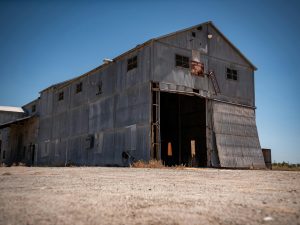Plus, ghost towns & the Internet
Florida cybersecurity bills are moving in the legislature in response to an increase in cybercrimes, why some places in Florida could become ghost towns in the next 75 years, plus the investment that’s hoping to sustain – and grow – some of the Sunshine State’s small and rural communities. It’s all in this week’s Florida Economy News.
 Cybersecurity Legislation: The Florida Legislature is continuing its effort to reduce liability associated with cybersecurity incidents. Relevant bill SB 658 has passed all of its committees and the identical HB 473 has passed two of its three committees thus far. The bills provide that should a county, municipality, other political subdivision of the state, commercial entity or third-party agent comply with certain requirements, they will not be held liable in connection with a cybersecurity incident. The bills require certain entities to adopt certain revised frameworks or standards within a specified time period; they also set a standard of burden for defendants in liability actions.
Cybersecurity Legislation: The Florida Legislature is continuing its effort to reduce liability associated with cybersecurity incidents. Relevant bill SB 658 has passed all of its committees and the identical HB 473 has passed two of its three committees thus far. The bills provide that should a county, municipality, other political subdivision of the state, commercial entity or third-party agent comply with certain requirements, they will not be held liable in connection with a cybersecurity incident. The bills require certain entities to adopt certain revised frameworks or standards within a specified time period; they also set a standard of burden for defendants in liability actions.
We all pay for cybercrimes through the resulting increased costs of goods and services. According to the Insurance Information Institute’s latest Issues Brief, cyber insurance premiums worldwide could rise to $23 billion by 2025, in part due to the rising prevalence of cyberattacks. The cyber insurance market has tripled in volume within the last five years, and the U.S. accounts for 56% of the premiums written globally on affirmative cyber insurance. Data breach costs have continued to skyrocket while cybersecurity budgets for companies rise much slower – well-timed legislation can provide the industry with some much-needed relief.
 Ghost Towns: Thousands of towns throughout Florida (and nationwide), are facing a plethora of issues that could reduce them to ghost towns by 2100, according to a recent study in Nature Cities. Large scale demographic changes have been occurring in rural areas, seeing younger people leaving smaller towns coupled with declines in industry and lower birth rates. Areas across the Florida Panhandle and Big Bend regions, as well as between Ft. Myers and Lake Okeechobee, have a predicted decline that is mirrored in about 15,000 towns and cities across the U.S., with population losses of upwards of 23%. Depopulation can cause disruptions in just about every facet of a community’s life, including commerce, transit, electricity and water treatment. This situation renders growth-based planning useless, which is a problem for modern urban planners, who are generally geared towards designing and streamlining infrastructure for ever-growing cities.
Ghost Towns: Thousands of towns throughout Florida (and nationwide), are facing a plethora of issues that could reduce them to ghost towns by 2100, according to a recent study in Nature Cities. Large scale demographic changes have been occurring in rural areas, seeing younger people leaving smaller towns coupled with declines in industry and lower birth rates. Areas across the Florida Panhandle and Big Bend regions, as well as between Ft. Myers and Lake Okeechobee, have a predicted decline that is mirrored in about 15,000 towns and cities across the U.S., with population losses of upwards of 23%. Depopulation can cause disruptions in just about every facet of a community’s life, including commerce, transit, electricity and water treatment. This situation renders growth-based planning useless, which is a problem for modern urban planners, who are generally geared towards designing and streamlining infrastructure for ever-growing cities.
 Expanding Internet Access: Could better Internet service make a difference in those population declines? Nearly $223 million in state and federal funding will be invested in expanding access to broadband internet for Floridians in small towns and rural areas. The Governor announced the funding will come through the Broadband Opportunity Program, to support 54 projects across 33 counties in the Sunshine State. High-speed internet, much of it over fiber optic lines, will be provided to over 27,000 individual locations, including homes, businesses, and community locations. Other funding comes through the Multipurpose Facility Program and is aimed at community infrastructure projects like health clinics and schools to help people “find jobs, access education resources and expand their business,” according to the Governor.
Expanding Internet Access: Could better Internet service make a difference in those population declines? Nearly $223 million in state and federal funding will be invested in expanding access to broadband internet for Floridians in small towns and rural areas. The Governor announced the funding will come through the Broadband Opportunity Program, to support 54 projects across 33 counties in the Sunshine State. High-speed internet, much of it over fiber optic lines, will be provided to over 27,000 individual locations, including homes, businesses, and community locations. Other funding comes through the Multipurpose Facility Program and is aimed at community infrastructure projects like health clinics and schools to help people “find jobs, access education resources and expand their business,” according to the Governor.

